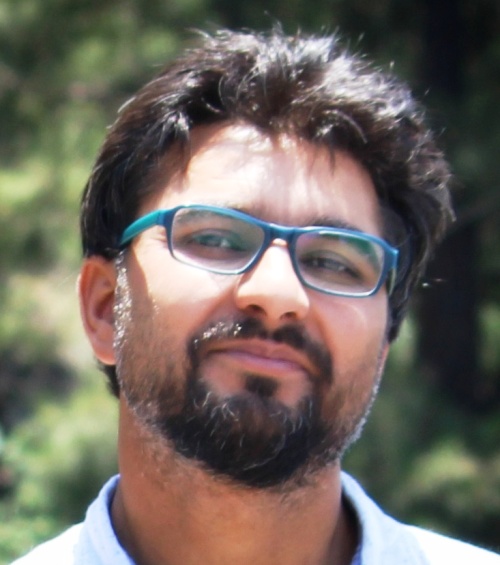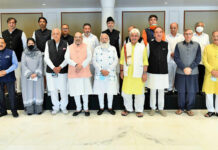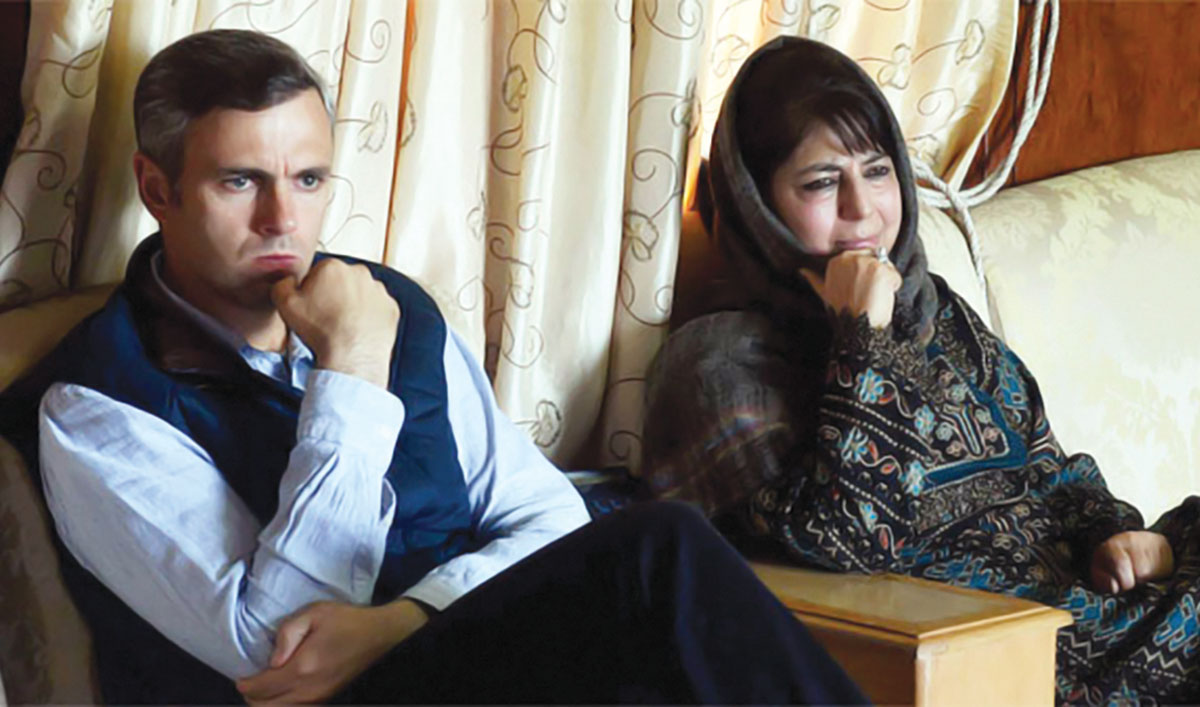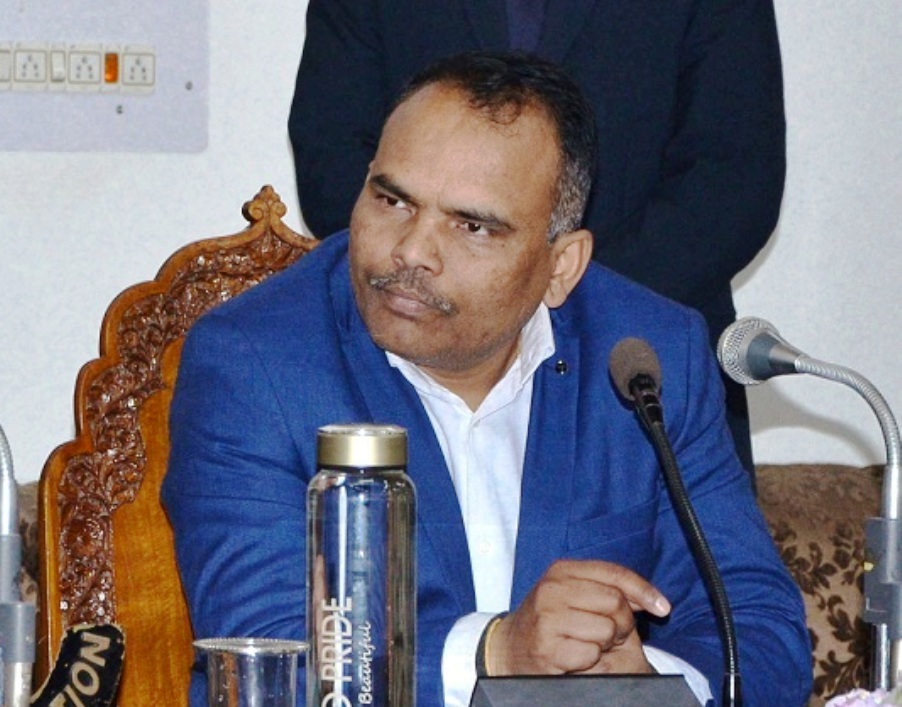by Dr M Junaid Jazib
Let us commit to a future where our actions nurture the planet that sustains us

On this International Day of Environmental Health, as we pause to reflect on the intricate interplay between our well-being and the environment, it is an opportune moment to acknowledge the pressing need for a profound shift in our relationship with nature. Our planet, the cradle of all life, is under siege, and our health is at stake. It is time for a reckoning, a moment of introspection, and a call to action that transcends borders and generations.
The intricate tapestry of life on earth owes its existence to a hospitable environment. Human well-being and survival are undeniably intertwined with the health and stability of our surroundings. It is a relationship that goes far beyond the aesthetics of pristine landscapes and clean air; it is about survival. The air we breathe, the water we drink, the food we eat—all are intimately linked to the environment. Our health, whether we acknowledge it or not, is inextricably tied to the health of our planet.
Environmental degradation, climate change, and biodiversity loss are not distant threats anymore. They are stark realities unfolding before our eyes. Rising global temperatures, erratic weather patterns, loss of biodiversity, and the increasing frequency of natural disasters are all manifestations of a planet in distress. This crisis is not only endangering countless species but also the future of our own. It is a crisis we can no longer afford to ignore.
The Tangible Threats
Environmental degradation takes a toll on human health that is often underestimated. Air pollution alone contributes to millions of premature deaths each year. Water pollution causes a myriad of diseases, especially in vulnerable communities lacking access to clean water. Climate change exacerbates heat waves, wildfires, and the spread of infectious diseases. These are not abstract concerns; they are real, tangible threats to our well-being.
To address the challenges we face, we must undergo a profound shift in our thinking. We can no longer view nature as an infinite resource to be exploited. Instead, we must recognise it as a finite, delicate ecosystem that sustains us. Our approach to development, consumption, and resource management must be reimagined to ensure the health of both the planet and its inhabitants.
Sustainable Living
Sustainable living is not a utopian ideal; it is a necessity. It involves adopting practices that reduce our ecological footprint. This includes embracing renewable energy sources, reducing waste, and promoting responsible consumption. Sustainable agriculture practices that prioritise soil health and biodiversity over monoculture are essential for our food security. Embracing such practices is not just an option; it’s a survival imperative.

Individual actions are vital, but they alone cannot address the scale of the environmental crisis. Governments and international bodies must take the lead. Comprehensive policies are needed to curb pollution, incentivise sustainable practices, and protect vulnerable communities. International cooperation is essential to combat climate change and preserve biodiversity. The Paris Agreement and the Convention on Biological Diversity are crucial steps, but we need unwavering commitment and action to turn these agreements into reality.
Make People Aware
Raising environmental awareness is a cornerstone of change. Education at all levels must emphasise the importance of environmental health. People need to understand the consequences of their actions on the planet and its repercussions for their health. Environmental education should be integrated into curricula worldwide, fostering a generation of environmentally conscious citizens who are equipped to make informed decisions.
Technology and innovation can be our allies in the quest for environmental health. Advancements in renewable energy, sustainable agriculture, and waste reduction can drive positive change. Governments and the private sector should invest in research and development to accelerate the transition to a more sustainable world. From electric vehicles to carbon capture technologies, innovation can be a catalyst for change.
Communities play a pivotal role in environmental health. Local initiatives, grassroots movements, and community-driven conservation efforts can make a significant impact. People coming together to protect their natural surroundings, advocate for clean air and water, and promote sustainable practices can bring about tangible change.
The environmental health of our planet is a collective responsibility that transcends borders and politics. It’s about safeguarding the well-being of current and future generations. It’s about recognising that we are all interconnected, and our actions reverberate across the globe. Every nation, every individual, has a role to play in this shared endeavour.
A Symbiotic Relationship

On this International Day of Environmental Health, let us remember that our health is intimately intertwined with the health of our planet. It is a symbiotic relationship that demands our attention, care, and action. We have the knowledge, the technology, and the collective will to address the environmental crisis. Now, it’s a matter of summoning the courage and resolve to act decisively.
Reimagining our relationship with nature is not just an environmental imperative; it’s a moral one. It is a declaration that we value the health and well-being of all life on Earth, including our own. Let us commit to a future where our actions nurture the planet that sustains us—a future where environmental health is not just a day of reflection but a way of life.
(The author is heading the Environmental Science department at the Government Post Graduate College, Rajouri. Ideas expressed in the write-up are personal.)















